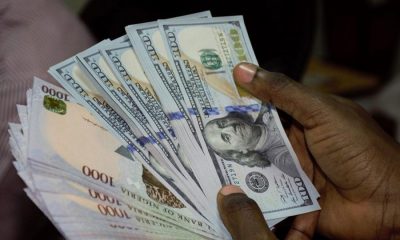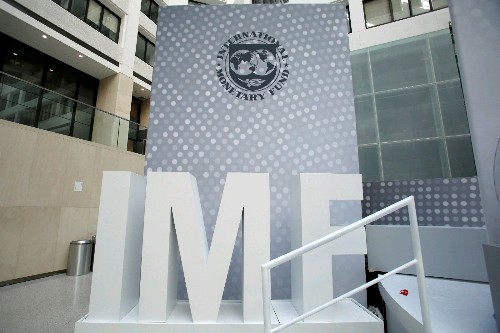The organised labour will today (Monday) commence protests across the nation over electricity tariff hike and removal of subsidy from the power sector by the Federal Government.
According to The Punch, the National Treasurer of the Nigeria Labour Congress, Olatunji Ambali and the National Deputy President of the Trade Union Congress, Tommy Etim, who confirmed the planned protests insisted on the reversal of the tariff hike to the subsidy era.
The labour action is expected to lead to the shutdown of the Abuja headquarters of the Nigeria Electricity Regulatory Commission, the Ministry of Power and state offices of power distribution companies.
The NERC announced the hike in the electricity tariff for Band A customers at a press briefing in Abuja on April 3, revealing that those affected would pay N225 per kilowatt-hour, up from the previous rate of N68/kWh.
The hike represented a 240 percent increase.
The development marked the removal of subsidy from the tariff of customers in the Band A category, who constituted about 15 per cent of the total 12.82 million power consumers across the country.
Based on the tariff hike, the Federal Government said it would save N1.5tn.
The government stated that the decision took effect on April 3, 2024, adding that Band A customers would enjoy up to 20 hours of power supply daily.
However, the House of Representatives, organised labour, the Nigerian Bar Association, Nigerian Association of Chambers of Commerce, Industry, Mines and Agriculture, electricity consumers and civil society organisations, demanded a reversal of the hike to the subsidy era tariff.
The House called on the NERC to suspend forthwith the implementation of the new electricity tariff nationwide.
But justifying the increase during an investigative hearing held by the Senate Committee on Power, Minister of Power, Adebayo Adelabu, argued that there would be a nationwide blackout in the next three months if the increase in electricity tariff was not implemented.
He said this after the Senate Committee, chaired by Senator Enyinnaya Abaribe, rejected the new tariff regime.
“The entire sector will be grounded if we don’t increase the tariff. With what we have now in the next three months, the entire country will be in darkness if we don’t increase tariffs. The increment will catapult us to the next level. We are also Nigerians. We are also feeling the impact,’’ Adelabu declared.
However, the NLC and the TUC insisted on the reversal of the tariff hike even as they expressed dissatisfaction with the epileptic power situation in the country, saying that it is affecting economic growth.
Speaking at the International Workers Day celebration in Abuja on May 1, the NLC President, Joe Ajaero, submitted that the government cannot fix tariffs in a sector that was already deregulated.
The TUC President, Festus Osifo, also faulted the hike, saying, “It is unethical to force Nigerians to pay higher tariffs for non-existent electricity. Estimated billing is an extortion and daylight robbery against Nigerians.”
The unions handed down a one-week ultimatum and threatened to picket NERC offices should a total reversal of the tariff to the subsidy era was not done. The ultimatum by Labour expired on Sunday (yesterday).
In a move to appease the unions, the NERC last week Monday ordered a downward review of the tariff from 225/kWh to 206.8/kWh, representing approximately an 8.1 percent reduction.
The commission attributed the cut to the relative appreciation of the naira in the official foreign exchange window.
NERC also said that the revision of the 2024 Multi-Year Tariff Order for Band A customers led to a reduction in tariffs for all discos.
In a statement announcing the cut, the commission said, “Under the tariff methodology adopted by the Nigerian Electricity Regulatory Commission, a revised tariff order covering the month of May 2024 has been issued by the commission to the 11 electricity distribution companies.
“The commission has considered changes in the macroeconomic parameters over the preceding month of April 2024 and especially the appreciation of exchange rates – consequently the commission has approved a downward review of end-user tariffs for Band “A” customers from NGN225/kWh to NGN206.8/kWh.
“The commission reaffirms its commitment to providing a balanced and effective regulatory regime serving the needs of the Nigerian Electricity Supply Industry.”
The National Treasurer of the NLC, Ambali, On Sunday said, the union had fully mobilised its members and affiliates for the protest against the tariff increase.
“We commend the Federal Government on halting the cyber security levy; however, labour is fully mobilised for the electricity tariff hike protests across the country.”
Corroborating Ambali, the National Deputy President of the TUC, Etim, noted that the organised labour was ready for the nationwide protests at the NERC offices.
“Of course, Labour is fully mobilised for the protests which will start tomorrow (Monday.)
Also, a top official of the NLC, who spoke on the condition of anonymity because he was not authorised to speak on behalf of the union, stated, “Picketing would start today not only at the offices of the National Electricity Regulatory Commission but also in all the distribution companies across the nation.”
He said the mobilisation of workers and affiliate unions was ongoing, adding that meetings were held on Saturday and Sunday by the NLC and TUC to fine-tune strategies for the labour action.
“We enjoin the civil societies, organisations, market women, and students to join organised labour because it is a collective battle, and we are all collectively being afflicted by the wicked policies of the government,” he noted.
“Collectively, we can push that back. As you can see, we have fought the issue of the cyber security levy and they have agreed to withdraw it.
“Together, if we fight this problem, one by one we will compel government’s actions that are anti-people to be pushed back. Don’t leave it to the NLC and the TUC but join us at the barricade so that together, we can compel the government to do the needful,” he appealed.
Meanwhile, civil society groups have endorsed today’s (Monday’s) showdown, saying they were committed to any action that could ameliorate the sufferings of Nigerians.
The Chancellor of the International Society for Social Justice and Human Rights, Dr Jackson Omenazu, said his organisation would join the protests called by the labour leaders.
“Look at the sufferings of Nigerians; the government should try to put up policies that will ameliorate the sufferings of the people and not increase their sufferings. The NLC and the TUC have our backing 100 per cent,” he said.
The Civil Society Legislative Advocacy Centre also expressed support for the picketing of the NERC and the power distribution firms.
The Executive Director of CISLAC, Mr Auwalu Rafsanjani, affirmed, “Any protest that is going to help Nigerian people to come out of the sufferings that Nigerian government policies have put the people, we will join.’’
Speaking further, he added, “In fact, CSOs don’t need to wait until Organised Labour calls for protest. We have been calling for a review of the policies of government negatively affecting the people: inequality, poverty, and corruption.
“We also support the NLC and the TUC on this move. Nigerian people have suffered enough in the hands of bad government and leaders who appear to be promoting inequality, poverty, corruption, and lack of comfort and social justice.’’
“We definitely as civil society organisations want to work with every like-minded person to ensure that these problems are addressed. Many Nigerians cannot afford good meals, accommodation, and education. This is welcome and we hope that the government will address this problem,’’ Rafsanjani noted.
The Executive Director of the Rule of Law and Accountability Advocacy Centre, Okechukwu Nwanguma, said he was in support of the protests, insisting that the government should address the issues raised by organised labour.
“We are in support of the call to protest the tariff hike by the NLC and the TUC,” he said.
Credit: The Punch
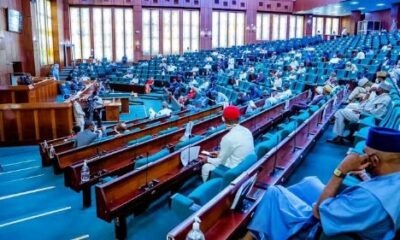
 BIG STORY4 days ago
BIG STORY4 days ago
 BIG STORY3 days ago
BIG STORY3 days ago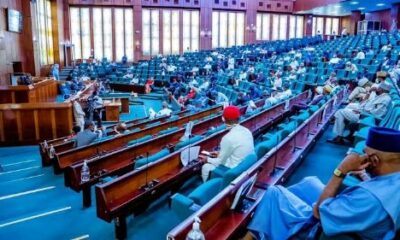
 BIG STORY4 days ago
BIG STORY4 days ago
 BIG STORY5 days ago
BIG STORY5 days ago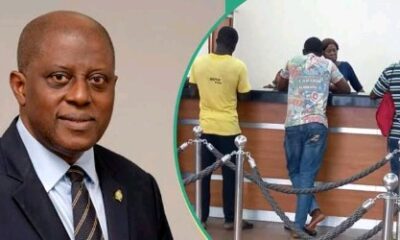
 BIG STORY5 days ago
BIG STORY5 days ago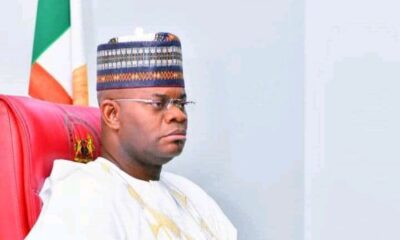
 BIG STORY3 days ago
BIG STORY3 days ago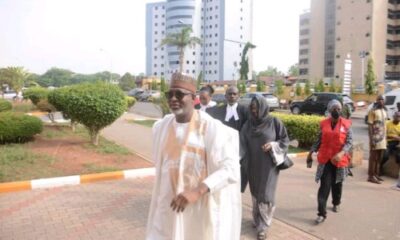
 BIG STORY4 days ago
BIG STORY4 days ago
 BIG STORY3 hours ago
BIG STORY3 hours ago







